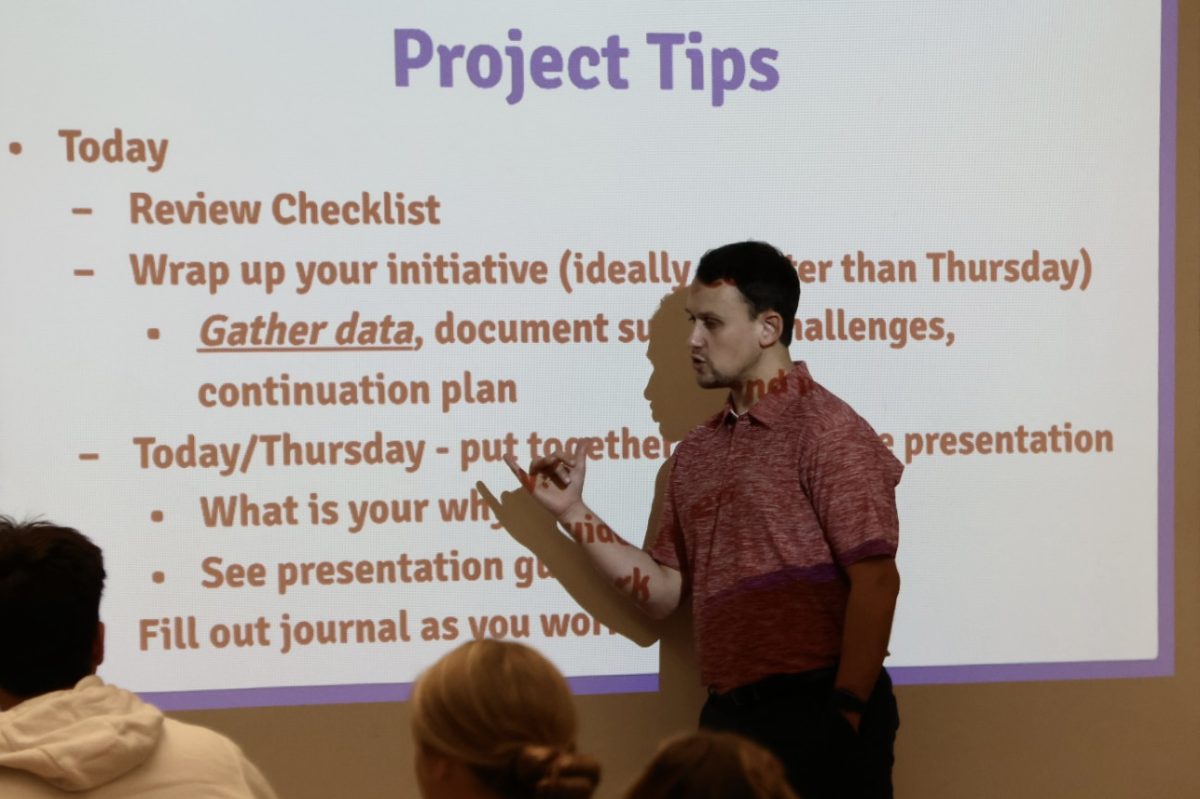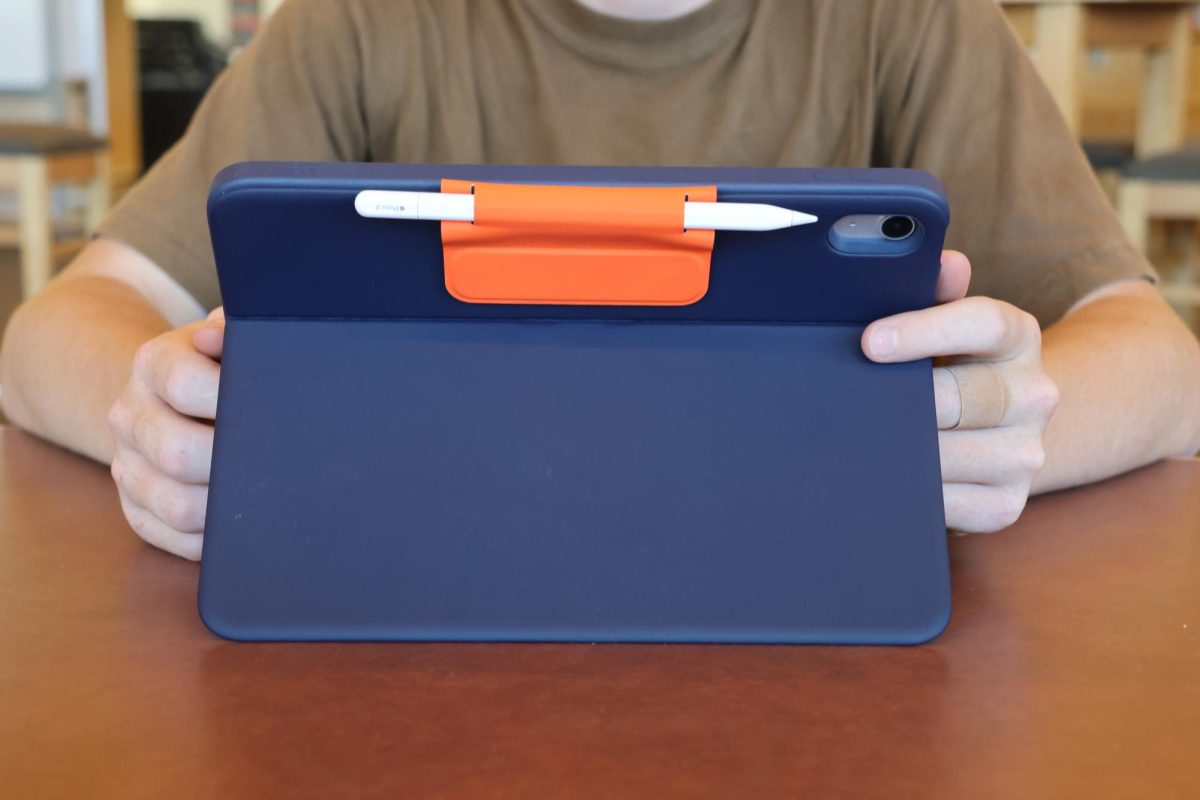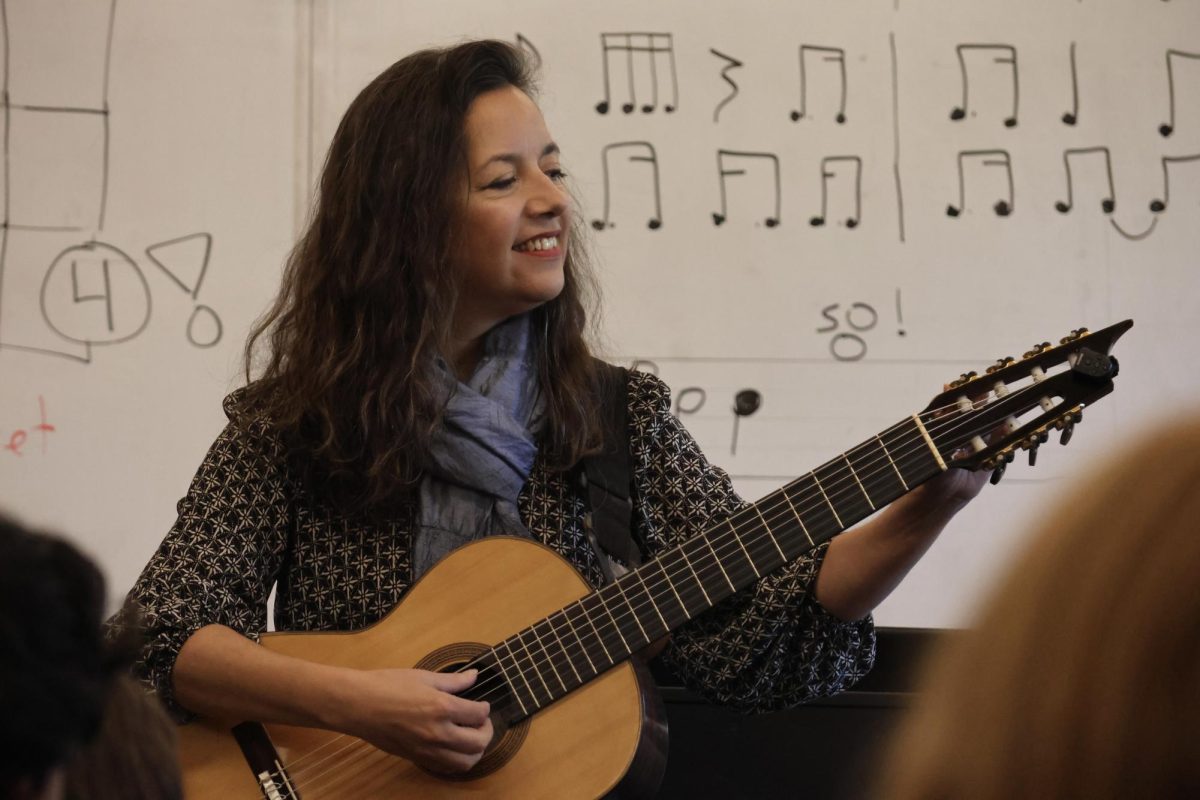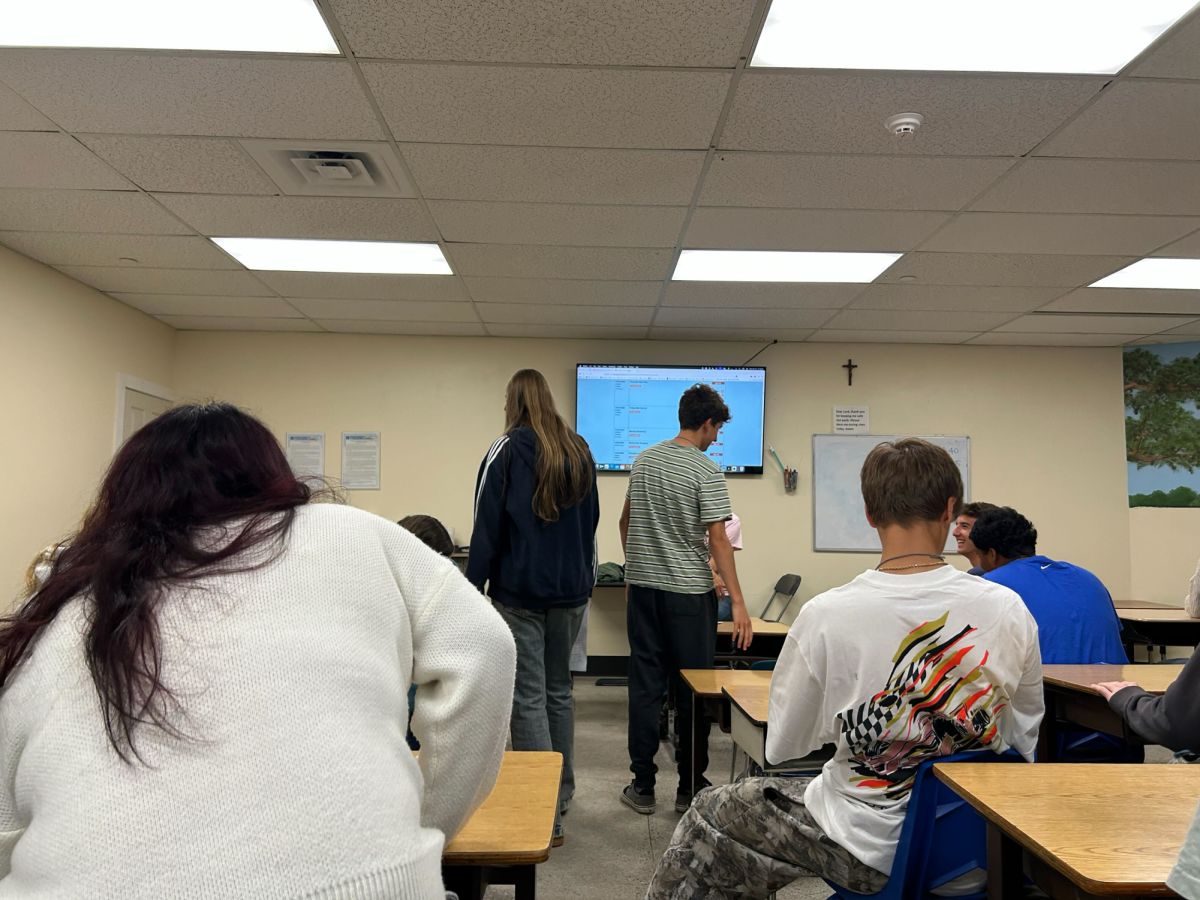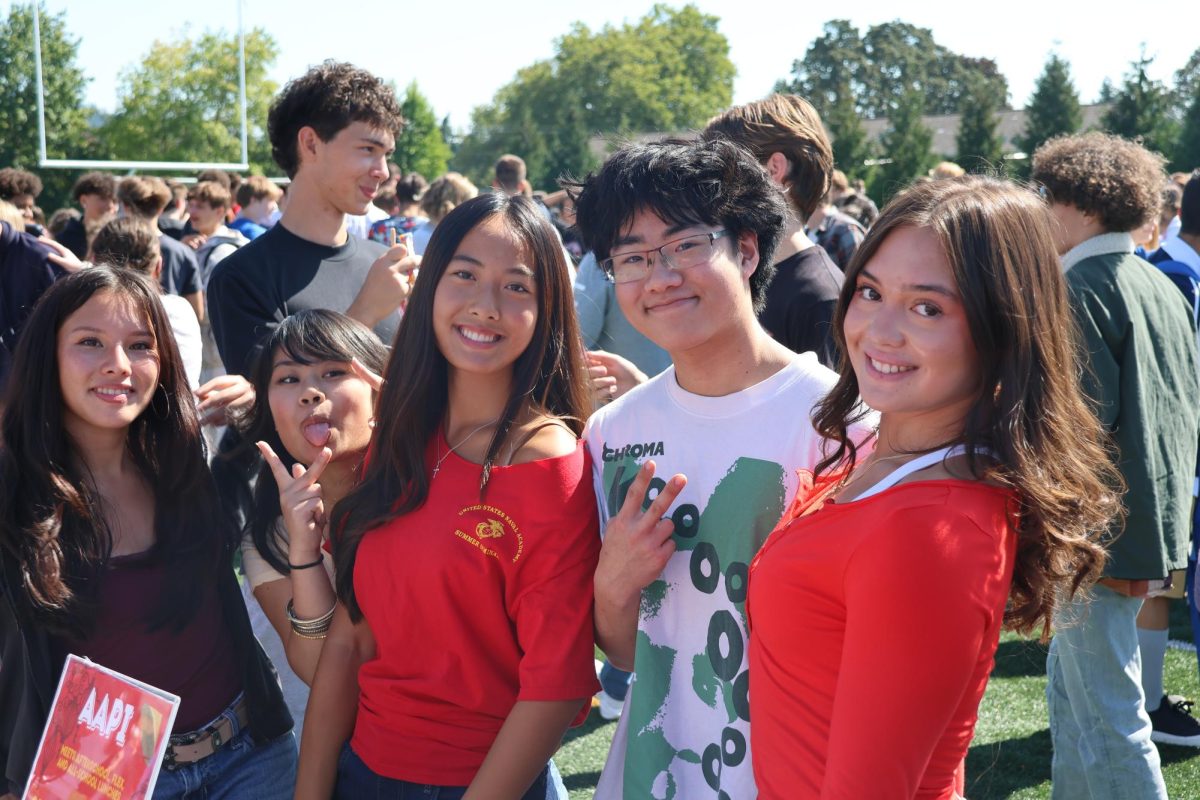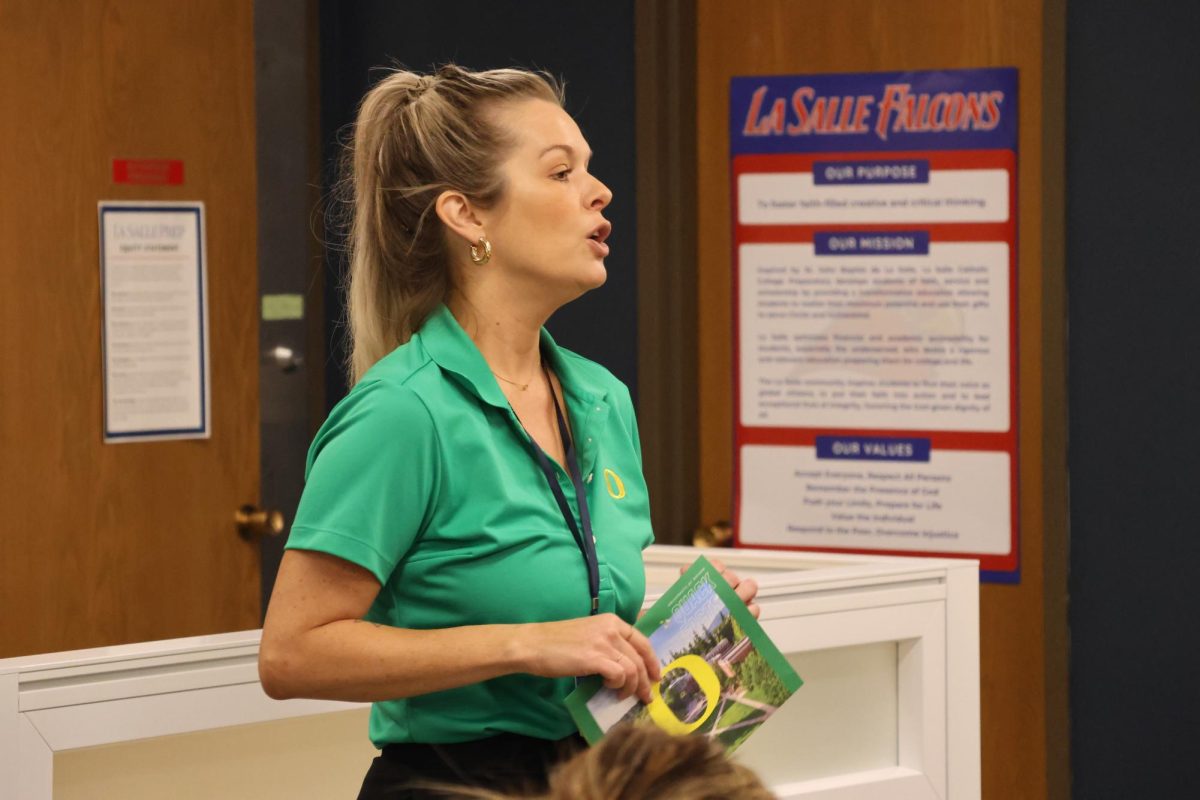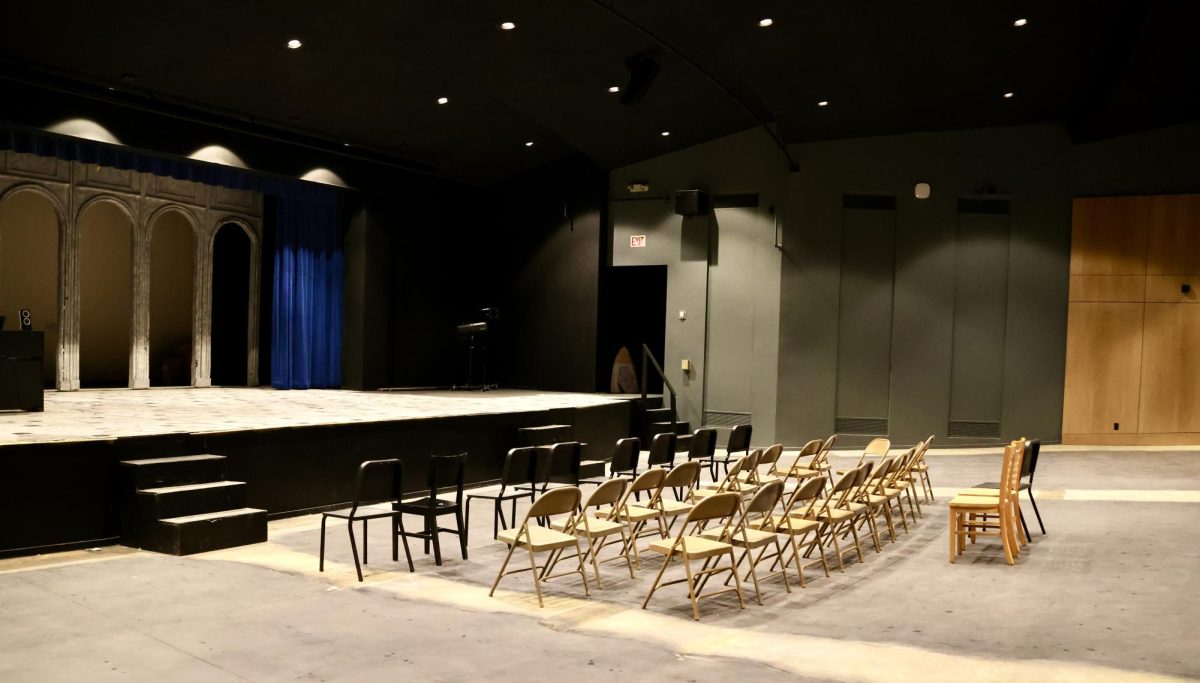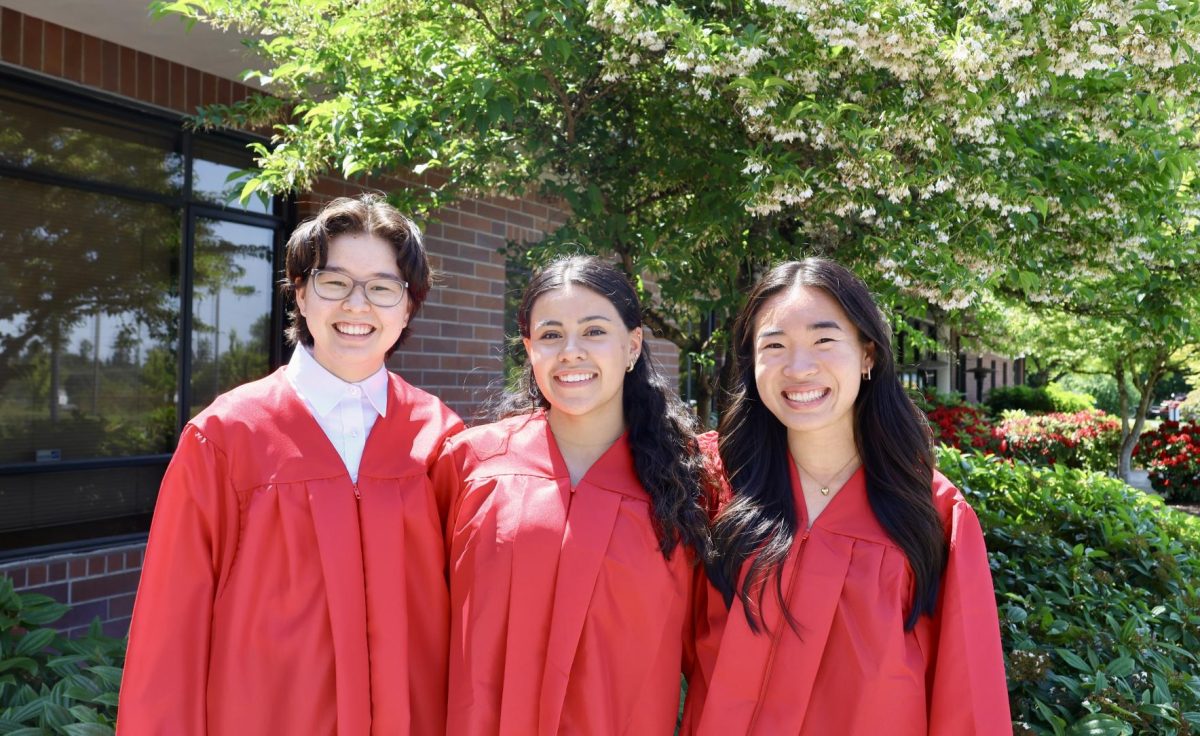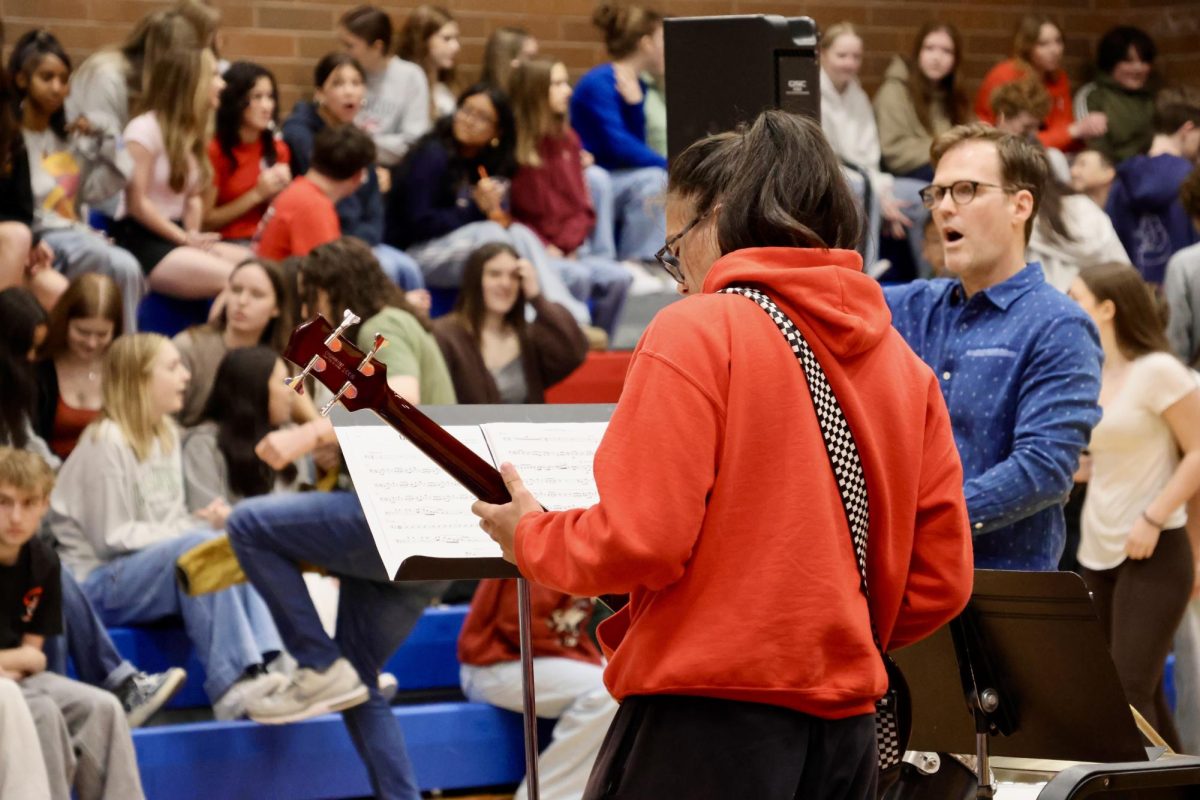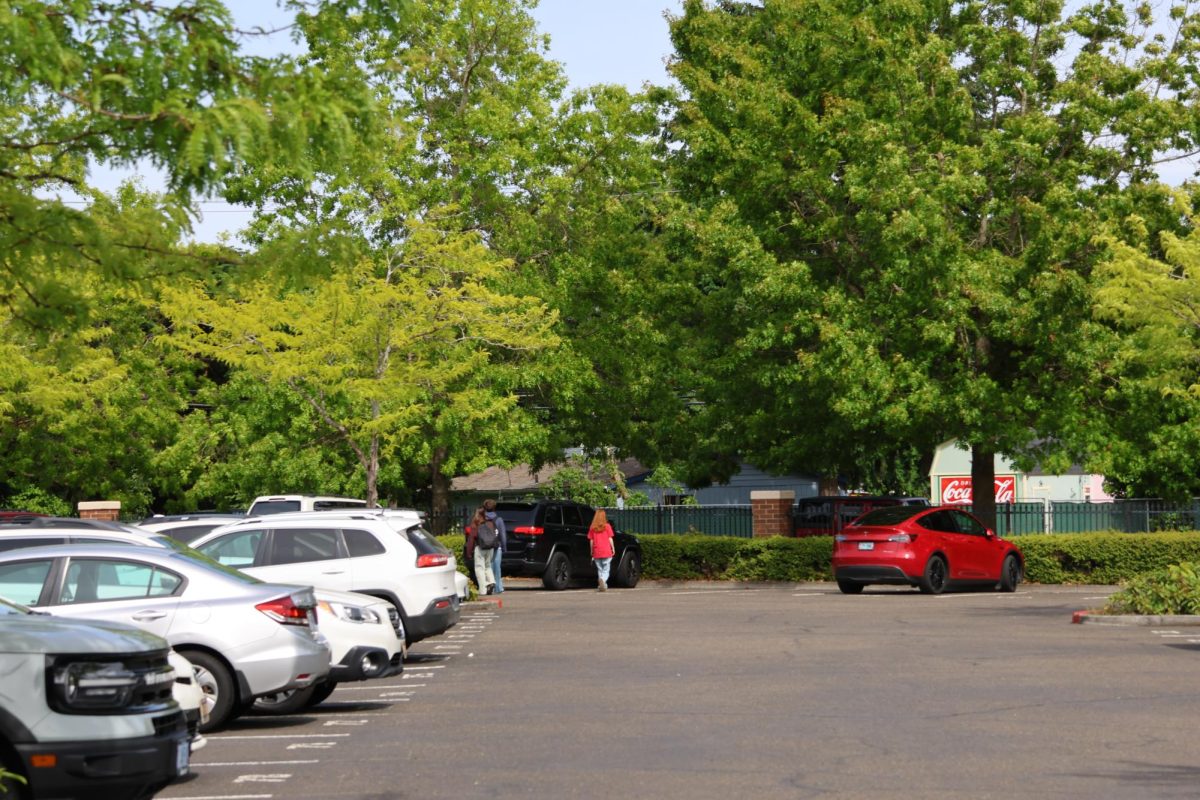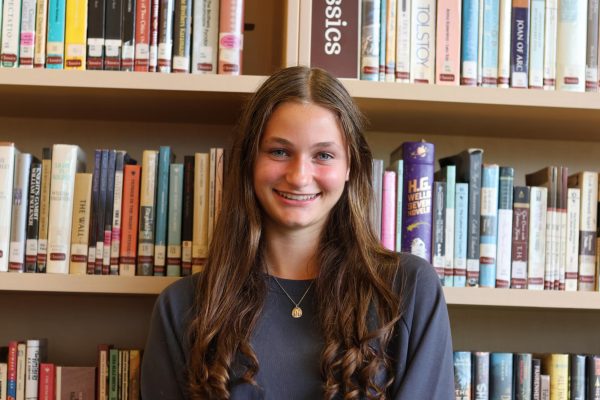A student-run flea market combating fast fashion, a school-wide battery recycling initiative, and a campaign to eliminate single-use plastics in the cafeteria — these are just some of the ways students in the new Climate Science elective class are tackling environmental issues through their final projects.
“Students were asked to respond to the question: How will La Salle respond to a warming world?” said Mr. Matthew Owen, Science Department Chair and science teacher.
Students worked in small groups to create the five final projects: a flea market, a battery drive, a sustainability dashboard, a presentation on vampire energy, and a campaign to reduce single-use plastic in the cafeteria. Each one was action-oriented and led and organized by students taking the class.
“It’s easy to be disheartened about the current direction associated with climate change, but being able to focus on things that we can control and help make our school a greener place were really two big positives for me,” Mr. Owen said.
Flea Market:
This initiative was organized by seniors Kellen Colletta, Madeleine Delaney, Lolo Gibson, Brooke Wilkinson, and Madeleine Wisler, and the actual flea market took place on Friday, Feb. 7, in the cafeteria.
The goal of this project was to inform students of the harmful effects that fast fashion has on the environment, with thrifting providing a solution where clothes can be reused instead of manufactured, as well as being more cost efficient, according to Wilkinson. To get their point across, the group created a one-pager on the downsides of fast fashion that students received at the flea market.
“We’re hoping to encourage people to thrift more,” Wilkinson said. “By doing this, maybe they’ll thrift outside of this also.”
To provide entrepreneurial opportunities, Wilkinson said some students sold their own clothes at the market to make a profit, but mostly clothing donations collected from students over the past few weeks were on sale, with proceeds going to the Oregon Environmental Council.
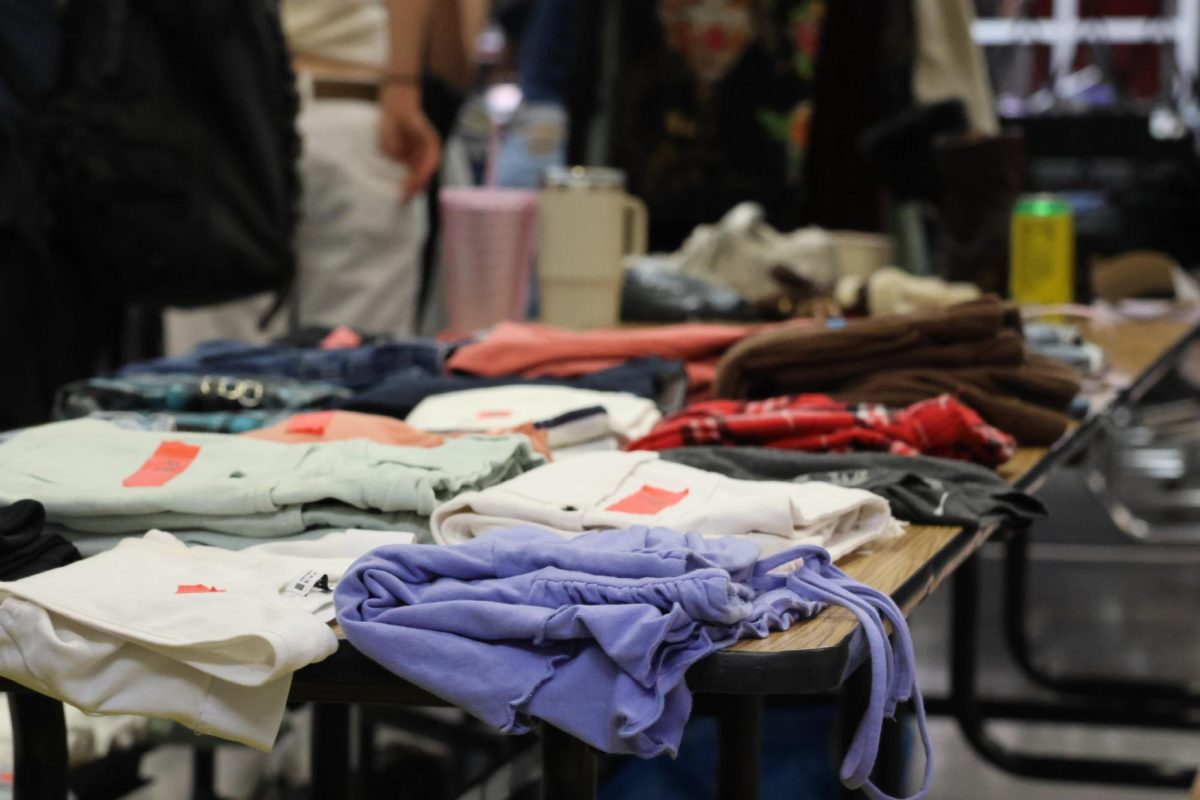
Battery Drive:
This initiative was organized by juniors Amelia St. Amand and Taryne Steinman. The goal was to give students a place to recycle their batteries in a safer way, since many people don’t know that disposing of them incorrectly is bad for the environment.
To organize the drive, St. Amand and Steinman gauged interest, got approval from Ms. Kenzie D’Ambrosio, Dean of Students, set up a bin for students to put the batteries in, and finally dropped them off at a battery disposal facility. The bin now lives in the front office where students can drop off batteries anytime to be recycled, and St. Amand and Steinman will be dropping them off periodically at the recycling facility.
At first, they were looking to work on a project regarding the cafeteria, but after talking to Ms. Megan Jones, Kitchen Manager, they switched. Ms. Jones told them an electronic waste drive would be a good idea, so they connected with Mr. Tad Shaw, IT/IS Operations Director, to set up the battery drive.
After being first introduced to students in a Schoology announcement on Jan. 10, the battery drive is something that St. Amand plans on keeping in the La Salle community and continuing for longer. She enjoys the project and hopes that it inspires people to be more thoughtful about where their waste is going because “we make more of an impact than we think,” she said.
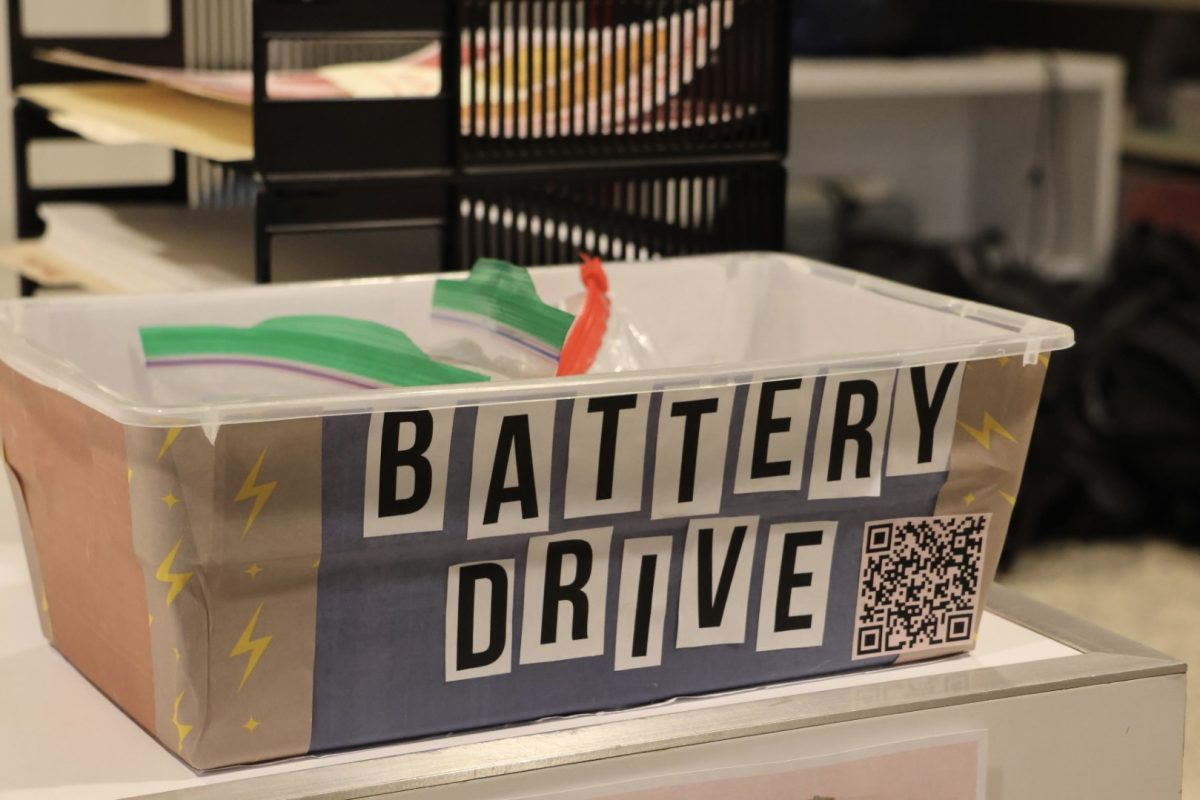
Sustainability Dashboard:
This initiative was planned by juniors Ashley Kamhoot, Madyson Lifshutz, and Rowan Palmer. The group hopes to put the dashboard on a bulletin board in the hallway, and, if put up, it will hold information such as predictions for the future of the Earth’s climate, historical facts about it, information about La Salle’s energy use, and suggestions for what students can do to help the environment. It would also include ongoing initiatives at La Salle, such as the battery drive.
“We think awareness and education is an important part of reducing the effects of climate change,” Kamhoot said.
Part of the idea for the project came from an article Kamhoot read that lists many statistics about people’s views on global warming and how they think it is developing on Earth. She hopes the sustainability dashboard will help inform students of what is going on with the climate and what they can do to help at La Salle.
“We learned a lot of information and now we’re trying to spread that information around La Salle,” Kamhoot said.
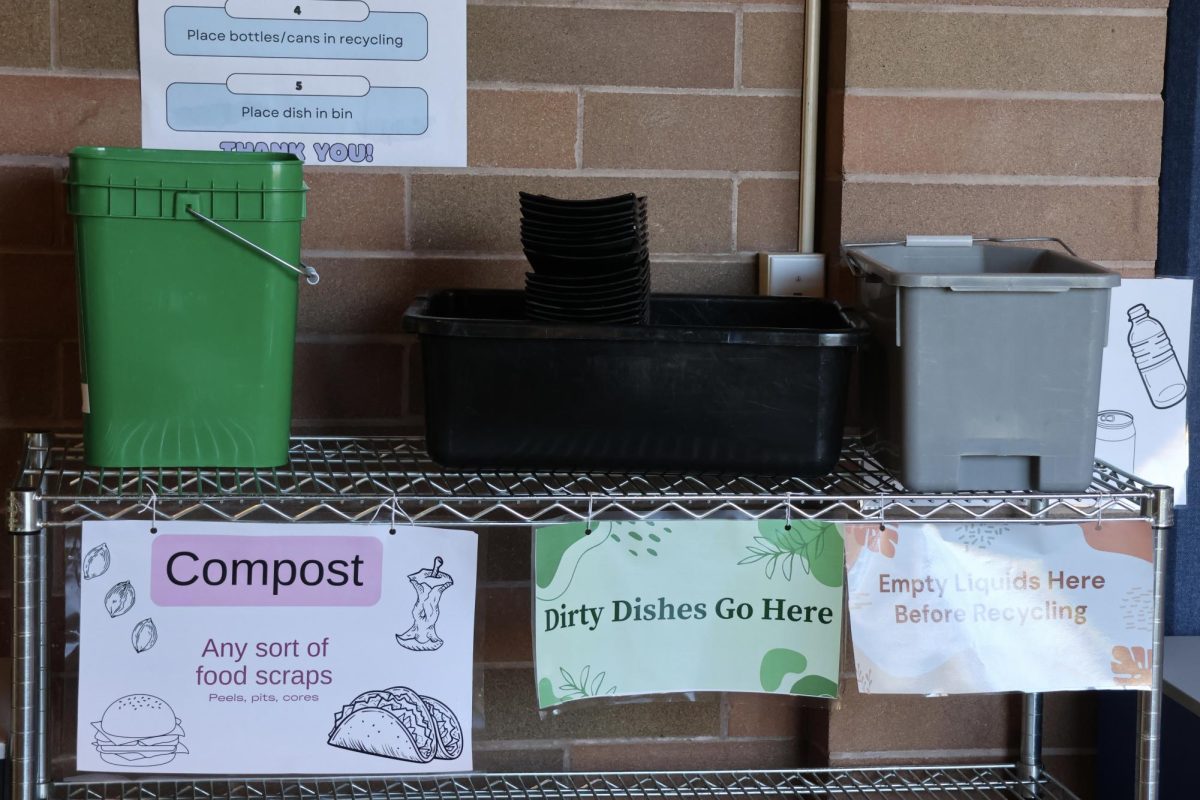
Vampire Energy Presentation:
This presentation was created by junior Madeline Schnyder and given during the final exam period to Mr. Owen, Ms. D’Ambrosio, and Principal Ms. Alanna O’Brien. It is about vampire energy, which is the energy consumed by devices when they are off or in sleep mode. Inspiration for the project came after Schnyder talked to Ms. Carie Coleman, Director of STEAM and Innovation and Design teacher, who told her about vampire energy in devices.
Without enough time or resources to put smart power strips in each classroom, which would counteract the energy wasted, Schnyder focused on evaluating the current energy use of three classrooms. She took an energy audit of devices that each classroom had in common and used that data to find how much vampire energy was present. She also conducted audits of microwaves, desktop computers in the library, and vending machines. She then calculated how much energy in kilowatt hours would be saved by implementing smart power strips.
“I wanted a way that would actually give lasting change to La Salle and something that we could implement now that would be able to be carried out in the future,” Schnyder said.
With more time, Schnyder hopes to research more devices, such as the laser engraver in the Innovation and Design Center. She also wants to test the energy efficiency of smart power strips with the goal of putting them into classrooms and conserving energy throughout the school.
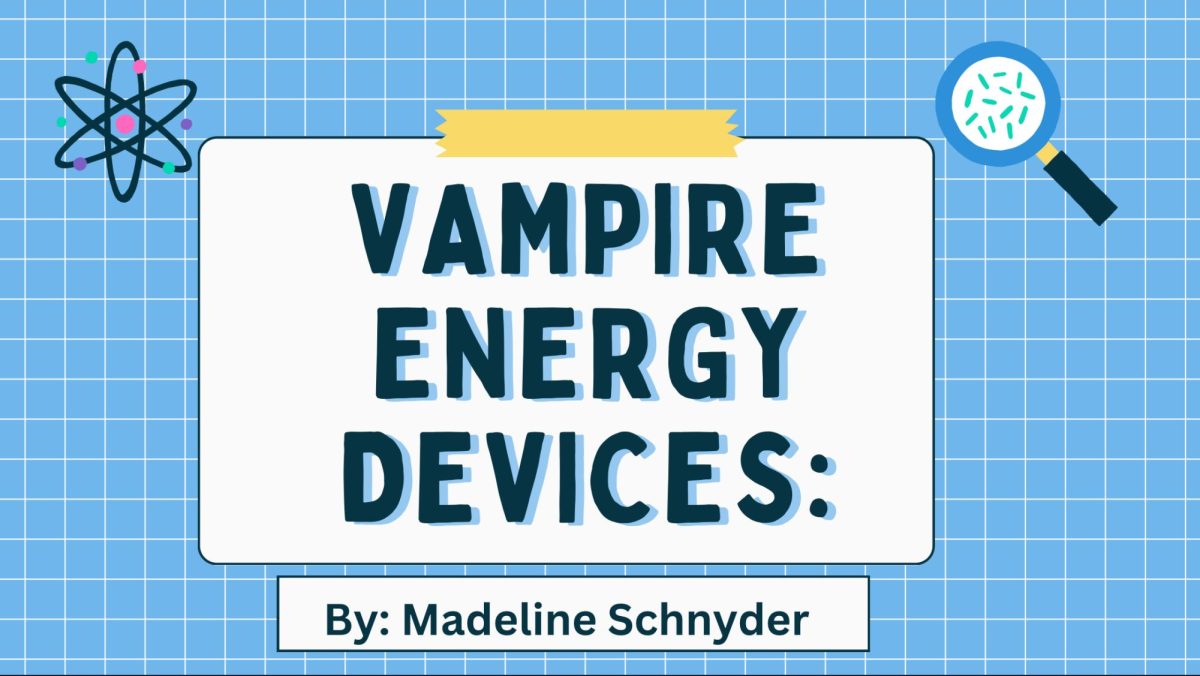
Single-Use Plastic in the Cafeteria:
This initiative was created by seniors Nicholas Arms, Jeffrey Boknecht, and Manu Tanzambi. The goal is to get rid of single-use plastic in the cafeteria and reduce the waste produced by meals.
Part of the initiative included trying to get condiment dispensers in the cafeteria (to cut down on the amount of plastic packets that are thrown away each day), and selling more canned beverages to students as opposed to plastic. In an effort to get more sustainable materials throughout the whole school, the group elected to start with these aspects of the cafeteria.
They also sent a Google Form out to students to gauge interest in different canned beverages the cafeteria could sell. “We’re taking their opinions into consideration,” Tanzambi said.
After they sent out the survey, Arms, Boknect, and Tanzambi met with the cafeteria staff and discussed implementing condiment dispensers and the results of the survey. In the end, Arizona Tea — a canned beverage — is now offered in the cafeteria.
Tanzambi thinks this initiative was a good way to sum up the semester of content they covered in the climate science class, and hopes that it helps La Salle students learn to recycle better and take care of the environment.
“I think [this project] reflects the maturity of what we’re learning and it also reflects an issue that we’re battling globally, which is global warming,” he said.
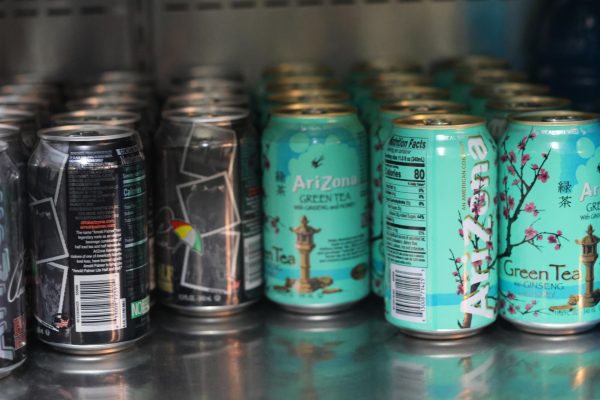
Moving Forward:
Reflecting on the initiatives, Mr. Owen is struck by how engaged the students were in the process.
“It’s just been really impressive to see how students have been learning about this and then really taking a dive into it and become really passionate about it,” he said.
During brainstorming for the projects, some students had to adjust their original ideas due to time constraints or other complications. However, in the end, most groups were able to turn their ideas into a reality. Beyond these projects, Mr. Owen hopes that students will realize that they are able to make changes wherever they are.
“I really hope that students know what they can do,” Mr. Owen said. “They can accomplish something, they can get something done, and they can hopefully have an impact, at least here in our immediate community.”


